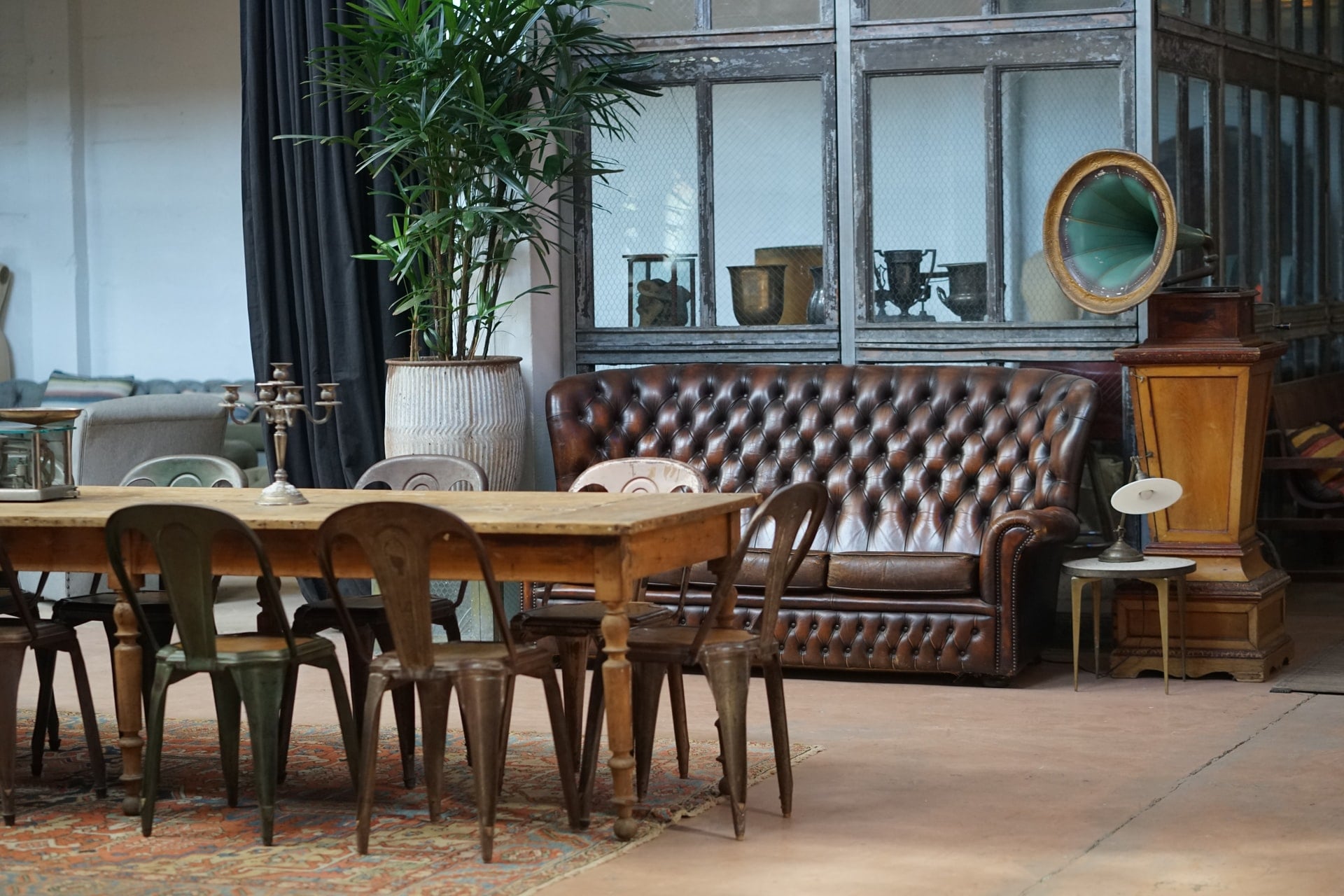
Photo by Lina Castaneda on Unsplash
Almost every issue contains examples of shelter magazines promoting vintage furniture in stunning displays of interesting rooms exuding one-of-a-kind charm. But what exactly is vintage furniture? What distinguishes it from antique furniture?
What Exactly Is Vintage Furniture?
Anything at least 20 years old is considered vintage furniture. A piece of furniture is considered vintage if it is at least 20 years old but has been restored.
Newer pieces, particularly those dating from the 1950s to the 1980s, are generally considered retro within the vintage category. Newer used furniture, dating from the mid-1980s and later, is simply referred to as used furniture. All furniture in the popular mid-century modern style since the first decade of the twenty-first century can be classified as both vintage and retro.
Even though most people use the terms old and vintage interchangeably, simply being old does not make any furniture vintage in the technical sense. To be considered vintage, a piece must also be an example of what defined a specific style during that time period. An Eames chair, for example, is a good example of vintage (or retro) furniture from the mid-century modern era. The piece does not have to be from a well-known line or manufactured by a well-known company; it simply has to exhibit the best characteristics of that era.
There are several reasons why vintage furniture is popular right now. So, vintage art deco furniture is making a comeback.
Creates a One-of-a-Kind Look
Even pieces that were once mass-produced and ubiquitous are becoming less common as time passes. Vintage pieces, as they become more unusual, give your decor individuality and style, possibly even creating a "cool" factor that can't be achieved when furnishing entirely with new pieces.
Because the vintage category includes furniture from multiple decades, you have two options when decorating with vintage pieces. You can either select pieces from a single vintage/retro era, such as mid-century modern, and use them to recreate that style down to the accessories, or you can carefully curate a collection of vintage pieces from different eras in a way that creates a harmonious and cohesive look. When combining pieces from different eras, make sure to tie the room together with color and a level of formality, so that even though the pieces are from different eras, they all share certain visual elements.
Budget-Friendly
If you appreciate fine-quality furniture but have a limited budget, purchasing vintage pieces allows you to indulge your taste for the finer things in life. Vintage furniture is less expensive than comparable new furniture. You may also discover that older furniture was better made and used finer materials than newer, much more expensive pieces.
Vintage Is Environmentally Friendly
When you buy vintage items, you are helping the environment. It is one of the more environmentally friendly methods of furnishing your home because you are saving old furniture from the landfill. Vintage furniture is also healthier for your home because it has already finished off-gassing any formaldehyde or other toxic substances present in the finishes and glues. If these pieces need to be refinished, non-toxic finishes can be used.
Where to Buy Vintage Items
Shopping for vintage furniture is always an adventure because you never know what you'll find or where you'll find it. If you shop online, make sure to factor in shipping costs and conduct as much research as possible before making a purchase. Here are some places to look for vintage furniture:
- Transfers from senior family members edgy retail establishments
- Online merchants
- Estate auctions
- Auctions held in person
- Websites for auctions
- Yard and garage sales
- Flea markets for charitable purposes, used bookstores
You may also like
Sustainable Kitchen: Eco-Friendly Design Ideas
Decorate Your Home Sustainably: 8 Tips For Eco-Friendly Decor
5 Reasons Why Bamboo Is Saving Our World
Eco-Friendly Home Building Materials You Can Repurpose and Recycle
